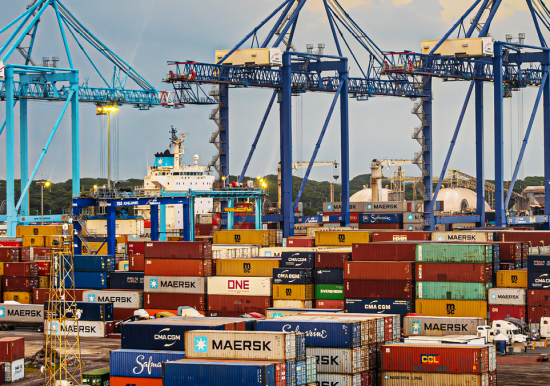
Financial Stewardship Country Snapshot: Portugal

Following the European sovereign debt crisis, Portugal experienced a decade of growing national indebtedness and low productivity growth.1 Facing insolvency in 2011, the Portuguese government undertook deep‑cutting reforms to restore fiscal sustainability and economic resilience.2
The government adopted a fiscal consolidation strategy to restrict public spending, which had outpaced economic growth. It also enacted structural reforms to boost growth, create jobs, and improve competitiveness, and stabilised the financial sector through recapitalisation and deleveraging.3 It reduced wages and increased working hours in the public sector, froze some pensions, and reduced certain social benefits.4 However, any tax increases or benefit cuts were designed to minimise impact on the lowest‑income groups.
Government debt sustainability has since become a cornerstone of Portugal’s financial strategy. The government has sought to moderate its debt over time, limiting the debt risk of state‑owned enterprises (SOEs) and renegotiating debt terms associated with some Public Private Partnerships (PPPs).5 Portugal’s debt‑to‑GDP ratio decreased from a peak of 132.9% in 2014 to around 116% in 2019. Borrowing soared during the economic shock of the global pandemic; however, public debt has declined since 2020 by 40% to 94.4% of GDP in 2024,6 and is expected to fall further.7 8 9
In recent years, Portugal has achieved a more sustainable fiscal balance, posting budget surpluses in 2022, 2023, and 2024.10 To reduce budget deficits with more predictability and accountability, the government has adopted a multi‑year budgeting framework, with clear expenditure ceilings and revenue targets.11 It introduced a digital tax administration system to boost tax compliance, combat tax evasion and broaden the tax base,12 adjusting value‑added tax (VAT) rates to generate additional revenue.13
Portugal’s improved Country Risk Premium rank (+11 in 2025) reflects increased investor confidence in its financial stewardship. The macroeconomic outlook for Portugal is positive, with the economy expected to grow by around 2% on average until 2028.14

Endnotes
- European Commission, Directorate‑General for Economic and Financial Affairs. (2011). The Economic Adjustment Programme for Portugal. https://ec.europa.eu/economy_finance/publications/occasional_paper/2011/pdf/ocp79_en.pdf
- Ibid.
- European Stability Mechanism. (n.d.) Assisted Countries: Portugal. https://www.esm.europa.eu/assistance/portugal
- European Commission, Directorate‑General for Economic and Financial Affairs. (2011). The Economic Adjustment Programme for Portugal. https://ec.europa.eu/economy_finance/publications/occasional_paper/2011/pdf/ocp79_en.pdf
- European Commission: Directorate‑General for Economic and Financial Affairs. (2024). Post‑programme surveillance report – Portugal, spring 2024. https://data.europa.eu/doi/10.2765/810761
- International Monetary Fund. (2025). General government gross debt – Percent of GDP. https://www.imf.org/external/datamapper/GGXWDG_NGDP@WEO/OEMDC/ADVEC/WEOWORLD/PRT
- International Monetary Fund. (2 October 2024). IMF Executive Board Concludes 2024 Article IV Consultation with Portugal. https://www.imf.org/en/News/Articles/2024/09/30/pr-24353-portugal-imf-executive-board-concludes-2024-article-iv-consultation
- OECD. (4 December 2024). OECD Economic Outlook, Volume 2024 Issue 2: Resilience in uncertain times. https://doi.org/10.1787/d8814e8b-en
- Filip, D., Masuch, K., Setzer, R. & Valenta, V. (3 December 2024). Greece, Ireland, Portugal and Cyprus: Crisis and Recovery. European Central Bank. https://www.ecb.europa.eu/press/blog/date/2024/html/ecb.blog20241203~5d969f5a3b.en.html
- The Economist. (10 December 2024). Which economy did best in 2024? https://www.economist.com/financeand-economics/2024/12/10/which-economy-did-best-in-2024
- Marinheiro, C. F. (25 September 2018). Medium-term Budgetary Framework in Portugal: Experience and Challenges. Portuguese Public Finance Council. https://www.cfp.pt/uploads/noticias_ficheiros/prt-cmarinheiro-mtbf-eunifi.pdf
- Interoperable Europe Portal. (4 May 2016). Taxpayers take centre stage in Portugal’s eFatura tax system. European Commission. https://interoperable-europe.ec.europa.eu/collection/egovernment/document/taxpayers-take-centre-stage-portugals-efatura-tax-system
- OECD. (2024). Consumption Tax Trends – Portugal. https://www.oecd.org/tax/consumption/consumptiontax-trends-portugal.pdf
- Portugese Public Finance Council (CFP). (19 September 2024). Economic and Fiscal Outlook 2024-2028 (update). https://www.cfp.pt/en/publications/economic-and-fiscaloutlook/economic-and-fiscal-outlook-2024-2028-update
More Stories


Global Influence & Reputation Country Snapshot: Türkiye

